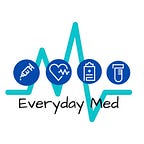Featured Story: Aspirin: Popular Pain Reliever or Covert Carcinogen?
The elderly have been a hot topic in the field of medicine lately due to their increased vulnerability and weakened immune systems when it comes to combating COVID-19. While the emphasis placed on fighting coronavirus among the elderly is much-needed, it dominates the headlines over what would have- before the pandemic- been surprising news. The latest in this series of hidden geriatric issues also happens to be one of the simplest forms of over-the-counter medicine: aspirin. A new study suggests that aspirin could be a risk factor among healthy elderly adults for advanced cancer diagnosis and even death.
The study results, published in March of 2020, observe whether or not a daily low dose of aspirin would decrease the probability of potential dementia among the elderly. It is important to note that all subjects were healthy at the start of the experiment. “A total of 19,114 participants were recruited, with 9,525 randomized to aspirin and 9,589 to placebo.” The study was double-blind, and the cognitive health of the participants was tracked as they aged. Eventually, researchers concluded that “there was no substantial difference in the risk of all dementia triggers between aspirin and placebo” and “cognitive change over time was similar in the aspirin and placebo groups.” The study appeared to produce no significant findings in the field of geriatric medicine. However, a reexamination of the experiment shines a light on the cons of aspirin use instead.
Although the initial results of the experiment were inconclusive, a follow-up on the health of the patients was crucial to the more recent discovery. When contrasting the all-cause mortality rates of the two groups, the report found that “Higher all-cause mortality was observed among apparently healthy older adults who received daily aspirin than among those who received placebo.” Even scarier than this increase in mortality rate is the leading cause of the mortality rate itself: “Cancer was the major contributor to the higher mortality in the aspirin group, accounting for 1.6 excess deaths per 1000 person-years.” While this study is still young and in need of confirmation and supporting research from the scientific community, the results are daunting.
In a world currently marked by coronavirus hysteria and negative effects of the pandemic, this newfound research is the cherry on top of a chaotic year in medicine. Aspirin, the pain reliever found in every CVS or Walgreens, could be a hidden cause of cancer and an overall increase in fatality rate among the elderly. Considering the household prevalence of aspirin and other similar drugs, these findings are uncomfortable and difficult to learn about. However, they serve as a reminder of the importance of continuous medical research; inspiration to always ask questions, motivation to work for results, and incentive to continue to improve the health of individuals around the world.
Sources
https://www.medicalnewstoday.com/articles/daily-aspirin-may-exacerbate-cancer-in-older-adults
https://n.neurology.org/content/95/3/e320 https://www.nejm.org/doi/full/10.1056/NEJMoa1803955
Written by Anna Cernich
Edited by Zain Qureshi
Graphics by London San Luis
Group advised by Aashima Sagar
